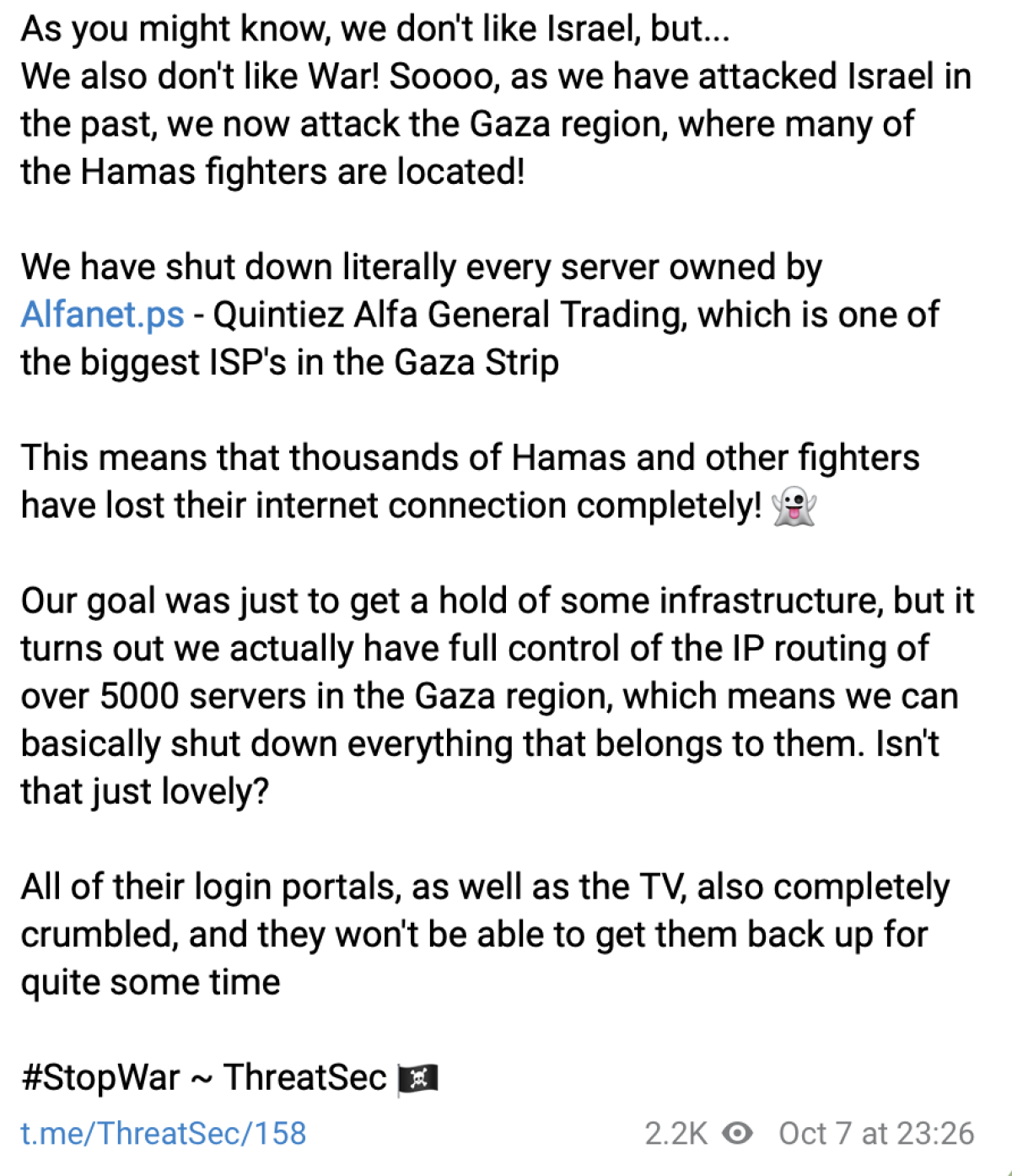The ongoing Israel-Palestine war has resulted in a high number of casualties. As you may know, Israel has blocked all access to food, fuel, and medicines in Gaza.
However, the war isn’t just being fought on the ground. A hacker group called ThreatSec has claimed responsibility for launching a series of cyberattacks on one of the biggest ISPs in Gaza. This will prevent Hamas and other fighters from using the Internet.
Let’s take a look at what happened.
Widespread Network Disruptions
On October 7, ThreatSec shared on Telegram that they have successfully shut down every single server by Alfanet.ps (Quintiez Alfa General Trading), one of the biggest ISPs in Gaza.

ThreatSec’s Telegram message.
As a result of the cyberattacks, thousands of Hamas members and fighters lost their internet access entirely. ThreatSec said that while their initial goal was just to seize infrastructure, they managed to completely take over the IP routing of over 5,000 servers in Gaza.
Which Side of the War Is ThreatSec On?
ThreatSec shut down everything owned by Hamas, including all TV services and login portals. The group stated it could take a long time for Hamas to rebuild the destroyed infrastructure. This may make you believe that they’re on the side of Israel, but the group mentioned that they support neither country.
The group asserted that while they “don’t like Israel,” they also don’t like war. It did, however, express contempt for Gaza in particular, while emphasizing their opposition to the current war.
How Will This Cyber Attack Impact the Israel-Palestine War?
Hamas, like many other terrorist groups, uses the Internet to coordinate plans for most of their actions and activities. ThreatSec shutting down the Internet in Gaza will clearly affect the group’s ability to plan attacks in the future.
Considering how technology has evolved, the importance of the Internet in times of war and conflict can’t be overstated. It’s very likely that we’ll see more cyberattacks in the future, but how they’ll impact the Israel-Palestine war is something that remains to be seen.


